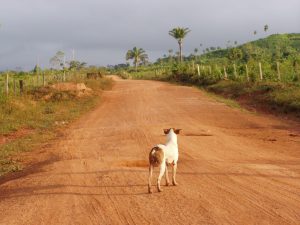
WALKER – Response to Corridors for people, corridors for nature
Robert Walker, Eugenio Arima, Stephen Perz, Carlos Souza
eLetter first published online: 3 FEB 2016 Science
ABSTRACT:
An article in Science by Haddad points to the positive and negative impacts of building roads in developing regions. Transportation investments promote development, but they can also cause environmental degradation.
We agree with Haddad that ecological impacts can be mitigated by appropriate road design. As our research has shown for Amazonia, the initial road network conditions the pattern of landscape connectivity. In Brazil, the federal government implemented colonization projects with equidistant spacing between parallel roads, serendipitously creating forest corridors conducive to biodiversity conservation. By contrast, spontaneous occupations typically manifest irregular road networks with excessive branching. Our research thus provides a note of cautious optimism that planners can align social and ecological objectives in building roads.
However, cautious optimism must be tempered by considering the road builder. If government is responsible, networks can be designed with corridors in mind, and sensitive habitats can be avoided. Complications arise when private individuals build “unofficial” roads. Then, personalized spatial objectives and topography produce irregular road networks without habitat corridors. In the Brazilian Amazon, the unofficial road system (456,793 km) dominates the official system of federal and state highways (49,642 km) by an order of magnitude.
Read the full publication at Science